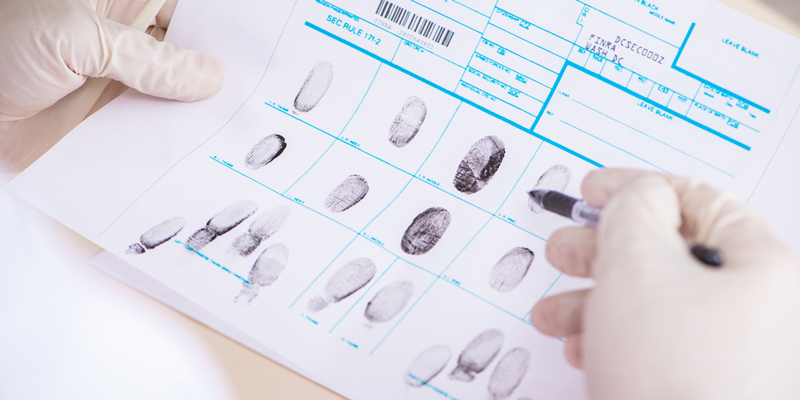Criminal Justice Careers: A Forensic Analyst
Learn about the exciting role of a forensic analyst, a criminal justice career in which collecting and analyzing crime scene evidence is at the forefront.

Learn about the exciting role of a forensic analyst, a criminal justice career in which collecting and analyzing crime scene evidence is at the forefront.

If you like the idea of working in a field in which you can help make the world a safer place to live, there are a number of criminal justice careers that serve this purpose. One that is featured on almost every TV crime show—whether fiction or reality—is a forensic analyst. What is a forensic analyst, what do they do, how much are they paid, and how do you become one? Let's answer all of these questions now.
While many criminal justice careers involve working directly with those who are suspected or convicted of committing a crime, forensic analysts spend their days working with the evidence they leave behind. That makes this a good position for someone who would rather work in a laboratory setting or respond to a crime scene after the immediate danger has been cleared.
Forensic analysts are tasked with collecting and/or examining crime scene evidence to learn more about the person who committed the offense or to include or eliminate a specific person as a potential suspect.
Perhaps the best-known job duty of a forensic analyst is to analyze fingerprints left at the scene. As a fingerprint analyst, they're responsible for matching crime scene fingerprints against the fingerprints of any potential subjects. They sometimes run these fingerprints through a law enforcement database to see if there are any matches. This can help solve the crime at hand, in addition to solving other crimes where fingerprints were left behind yet no suspect was identified.
Forensic analysts also look at other crime scene evidence, such as blood and hair samples. If a specific object or weapon was used in the commission of the crime and left at the scene or later recovered, they examine that as well.
Some forensic analysts work strictly in the lab, analyzing crime scene evidence collected by officers, detectives, or other law enforcement personnel. Others in this criminal justice career collect the evidence themselves, responding directly to crime scenes.
Forensic analysts are also sometimes called to the courtroom to testify about their findings. Their testimony is needed to help the judge or jury better understand the forensics process, or to explain why a particular person likely did or did not commit the crime in question.
The Bureau of Labor Statistics (BLS) refers to forensic analysts as "forensic science technicians" and reports that the median pay for persons in this role is $59,150 per year. This equates to roughly $28.44 per hour. Since this is the median, half of the forensic analysts in the U.S. make more than this amount and half make less.
The BLS adds that pay can vary based on which industry you work within. For instance, forensic science techs working for state governments earn a median annual wage of $60,830 per year. Those who work for testing labs have a median pay of $55,100 annually.
If working as a forensic analyst sounds like the right criminal justice career for you, the good news is that the BLS expects jobs in this position to increase 14% between 2019 and 2029. For comparison purposes, the average growth rate for all other occupations combined is only 4 percent. That makes this a good time to get into this type of role.
Typically, you need at least a bachelor's degree to work as a forensic analyst. Oftentimes, this degree is in some type of forensic science. However, some agencies may require that you have a master's degree as well.
Additional skill sets that can make you more successful as a forensic analyst include:
It also helps to have an inquisitive nature, always asking why something may or may not be a certain way, as well as to decide if other possible explanations may exist.
If you've been nodding your head yes while reading this article, picturing yourself in a lab or investigating a crime scene, we'd love to help you make this image a reality!
Saint Leo University offers a bachelor's degree in criminal justice with a criminalistics specialization. This 39-hour major helps prepare you to work in this role by teaching you about fingerprint analysis, evidence preservation, bloodstain interpretation, and more.
You can also earn your master's degree at Saint Leo with our Master of Science in criminal justice with a specialization in forensic science. This graduate degree program includes courses such as Forensic and Medicolegal Death Investigation and Crime Scene Investigation and Management. Elective courses range from Insights into Criminal Behavior to Investigative Methodologies of Violence to Research Methods in Criminal Justice, and more.
Each of these programs can get you one step closer to a satisfying and fulfilling criminal justice career. Contact us today to learn more.